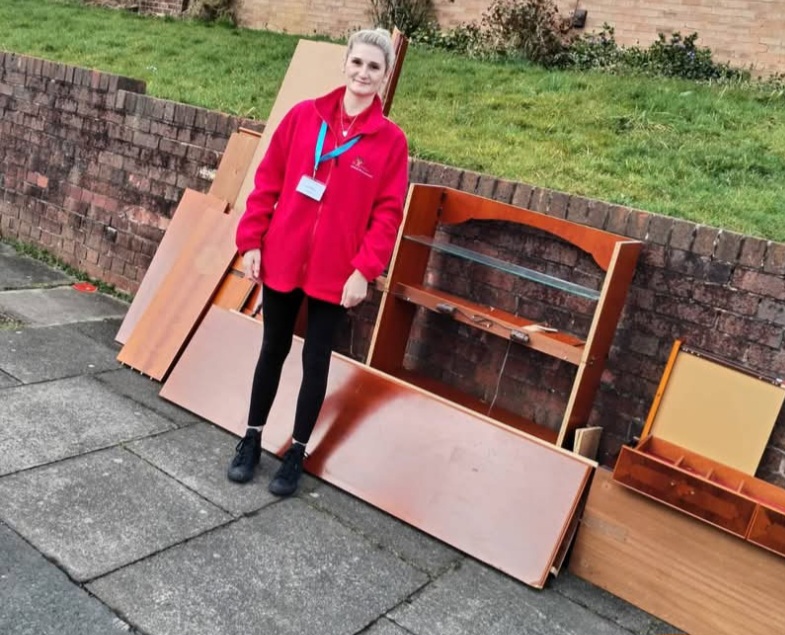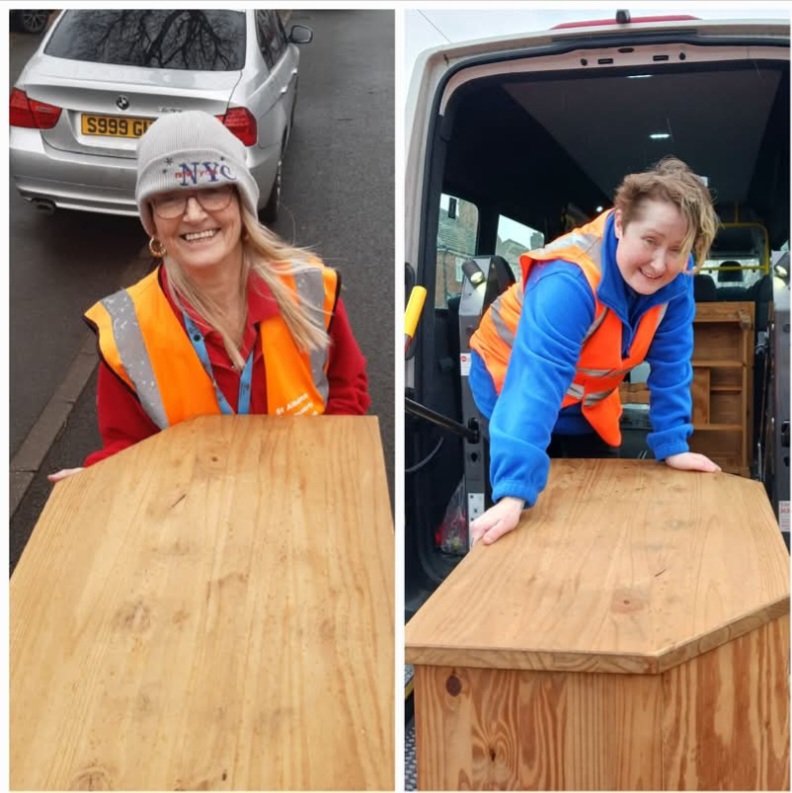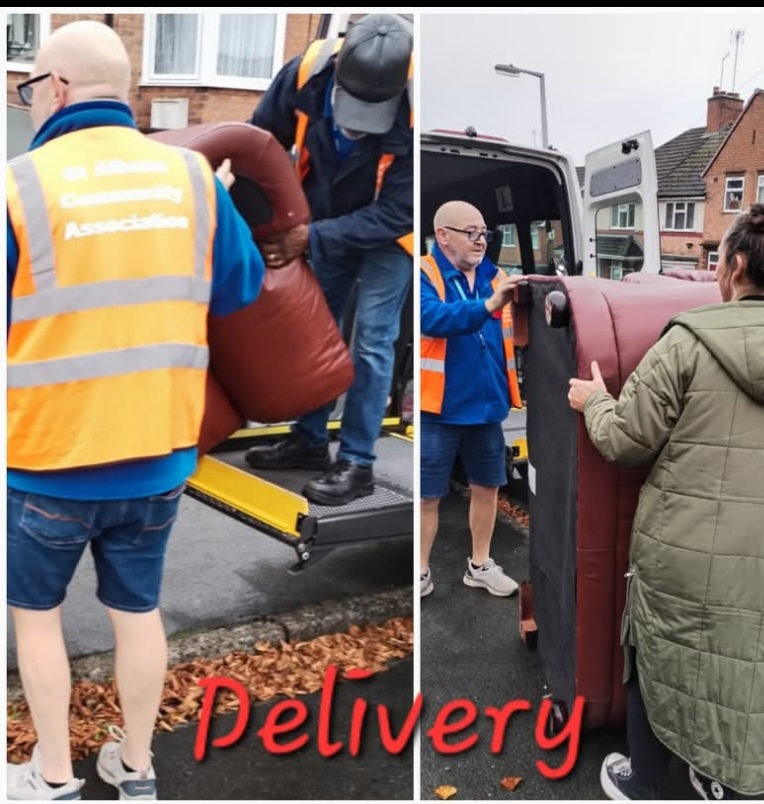Clothing Recycling






Recycling clothing gives a second life to garments through reuse or repurposing and supports the circular economy, aiming for up to 70% textile recycling by 2030 in Europe.
We collect good-quality clothing and redistribute it to individuals and families who are in need.
Furniture Recycling – Giving Homes and Items a Second Life
Good-quality furniture should never go to waste. Sofas, tables, chairs, wardrobes, and beds often end up in landfill simply because they are no longer needed, not because they are no longer useful. By collecting, refurbishing, and redistributing furniture, we help create homes for those who need them while reducing waste and protecting our environment.
Recycling Aids and Adaptations
Every year, thousands of mobility aids and home adaptations—such as wheelchairs, walking frames, grab rails, and bath lifts—are discarded while still in good condition. By collecting, refurbishing, and redistributing these items, we can make a real difference to people who need them most.
Recycling Everyday Household Items
Many household items are thrown away long before they reach the end of their useful life. Curtains, cushions, kettles, toasters, and other small appliances can often be cleaned, repaired, and enjoyed by another household.
How our recycling works:
- We collect good-quality curtains, cushions, kettles, toasters, and other small household essentials from donors.
- Items are checked, cleaned, and safety tested where required.
- We pass them on to individuals and families through our redistribution network.
Food Surplus Redistribution
We are committed to reducing food waste and addressing food poverty within our community. Through our partnerships with organisations such as FareShare and Helping Hands, we are creating practical, local solutions that ensure surplus food reaches those who need it most.
With regular deliveries of redistributed food, we support individuals and families experiencing food insecurity by providing access to quality surplus items that would otherwise go to waste. This not only helps to ease financial pressure on vulnerable households but also contributes to a more sustainable and responsible approach to food consumption.
Together with our partners and the wider community, we are building a fairer, greener future—where no good food is wasted and no one goes hungry.
How we distribute surplus food:
- Individuals and local shops donate surplus or unwanted foods.
- Items are checked and any foods that should not be offered to the public are removed and disposed of.
- Mondays & Thursday – a collect only provision is provided at St Albans.
- Records are kept for monitoring purposes only.
You Can Help
If you have any of the above — good, clean clothing; household items in working order; furniture that is fit for purpose; or white goods (fridges, freezers, washing machines, cookers) in safe, working condition — we’d love to give them a second life.
Your donation could make a real difference:
- Your unwanted kettle might brew a first cup of tea in someone’s new home.
- Your spare curtains could bring warmth and comfort to a living room.
- Your fridge-freezer could help a family store fresh food for the first time.
- Your sofa could become the place where a family relaxes together at the end of the day.
By donating, you’re not just passing on an item — you’re helping someone feel at home, supporting sustainability, and making sure nothing useful goes to waste.
How to donate: Drop your items off at our centre or contact us to arrange a collection. Together, we can make a big difference, one item at a time.
